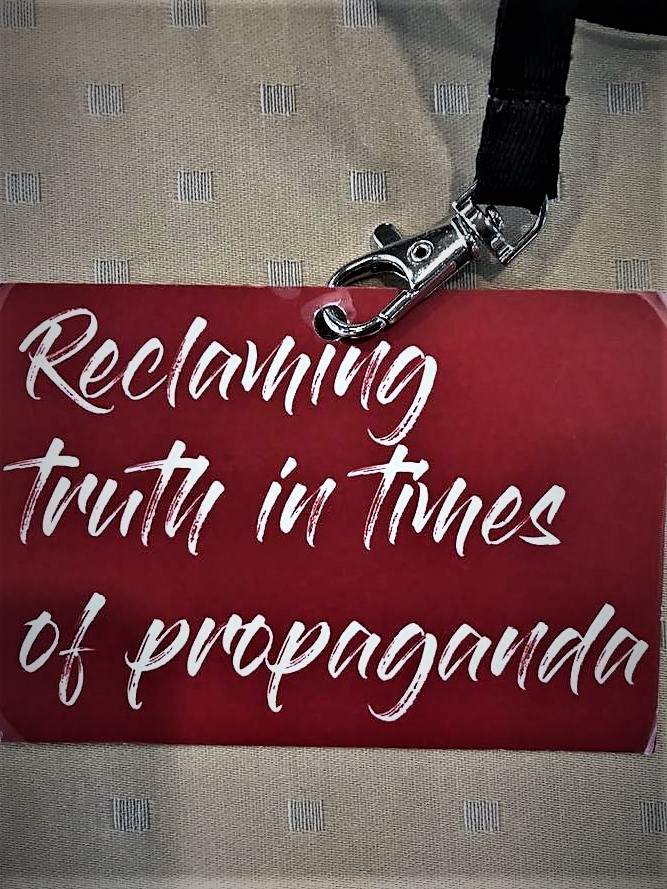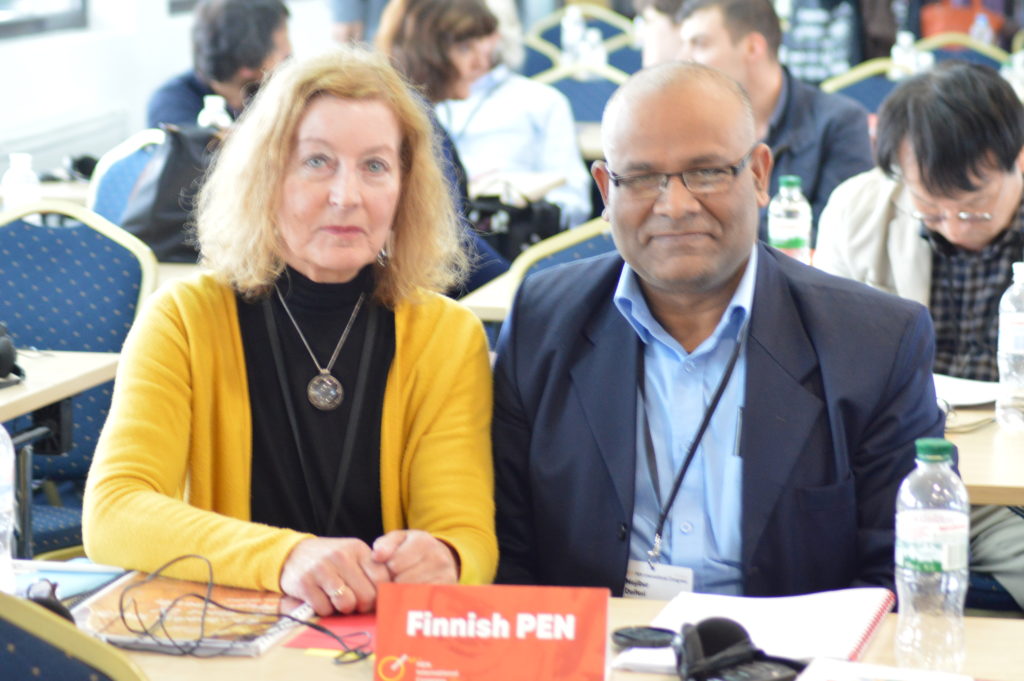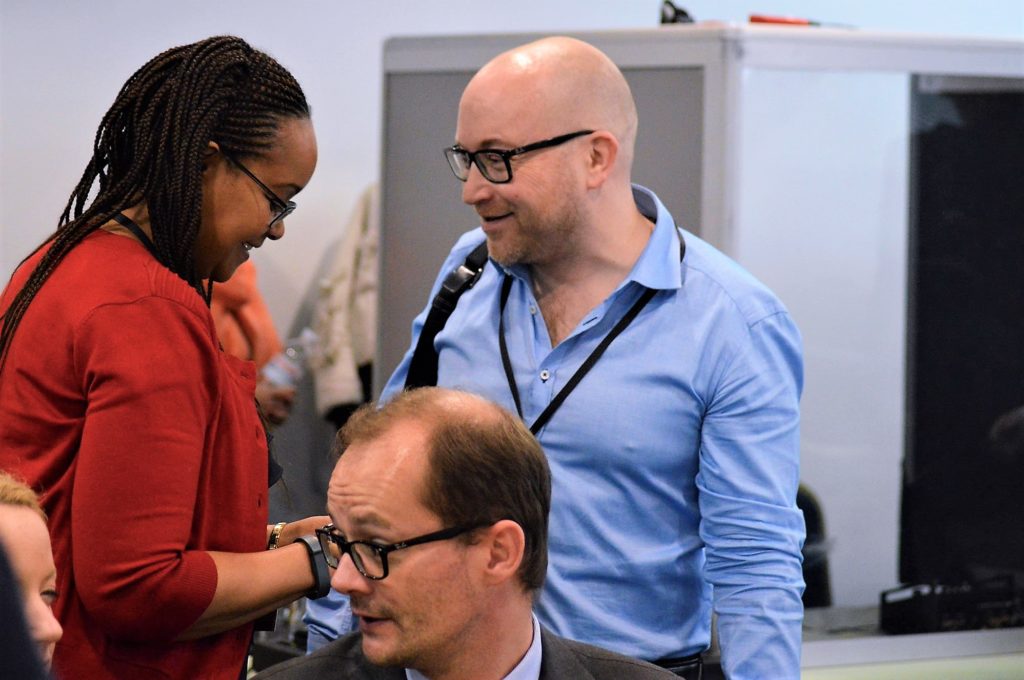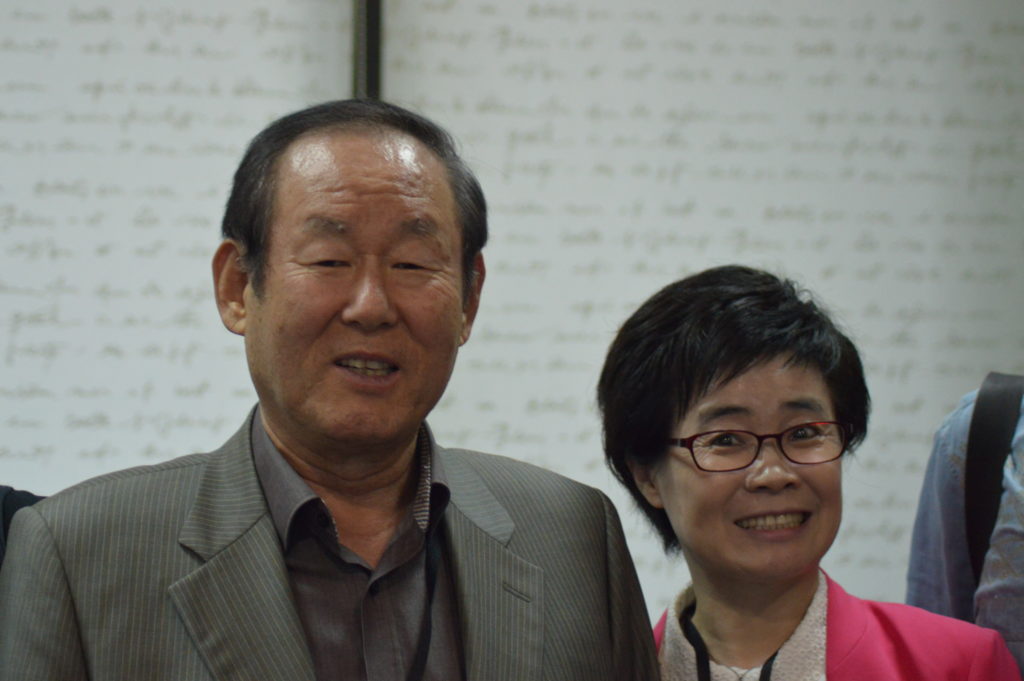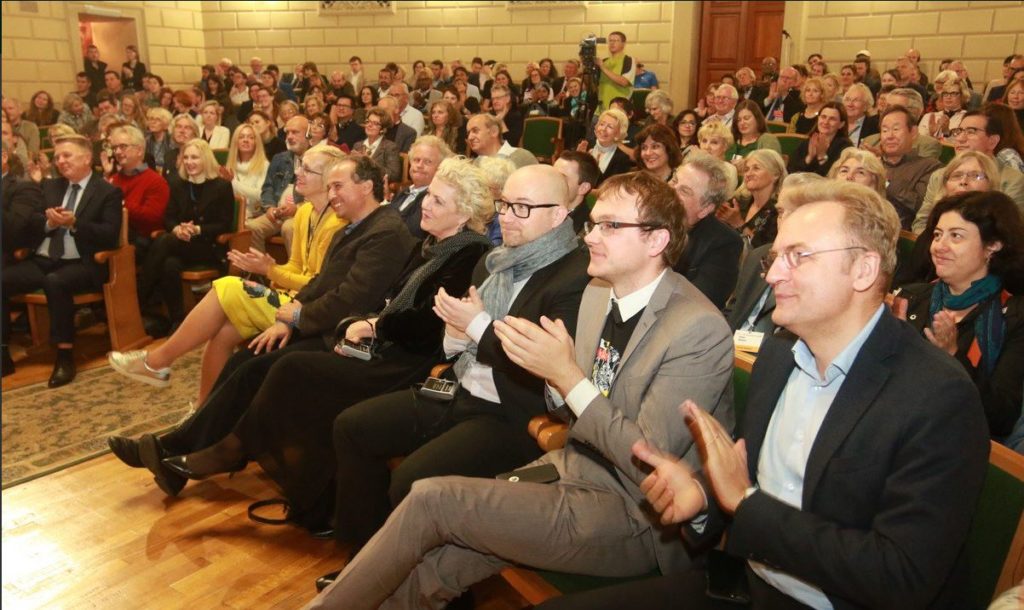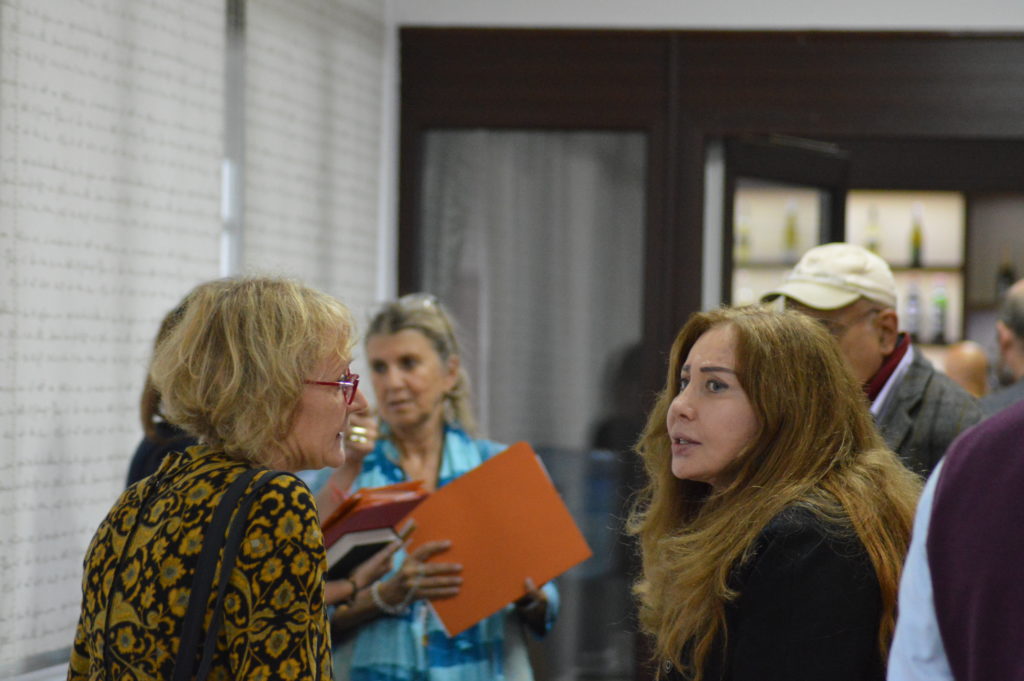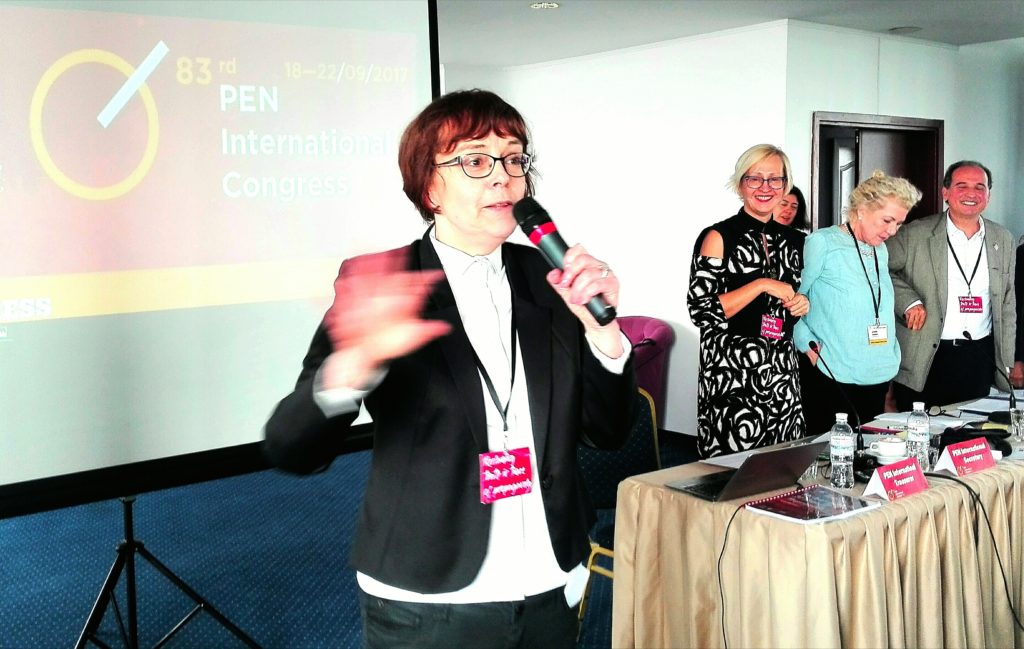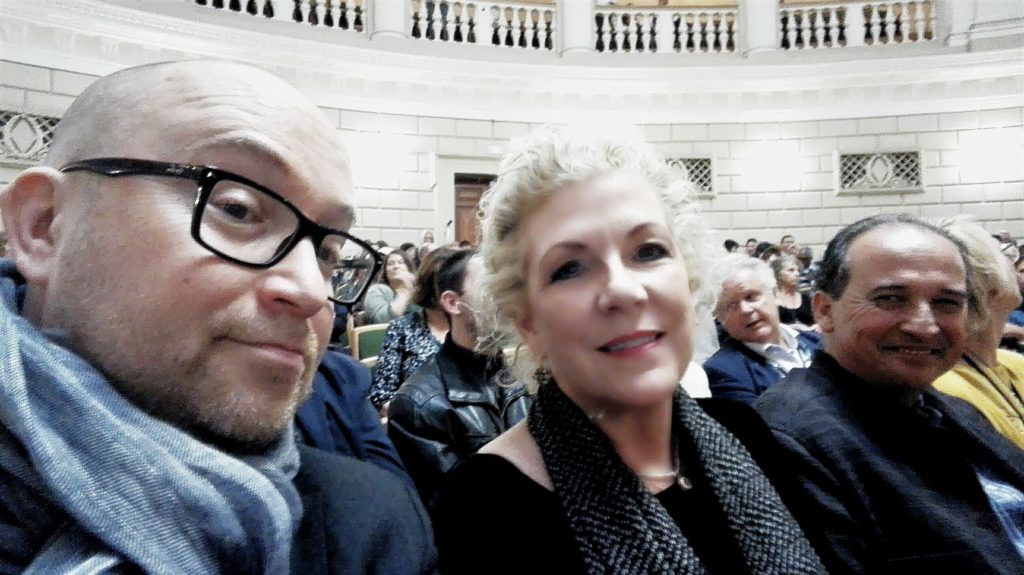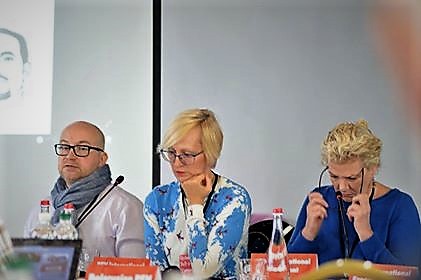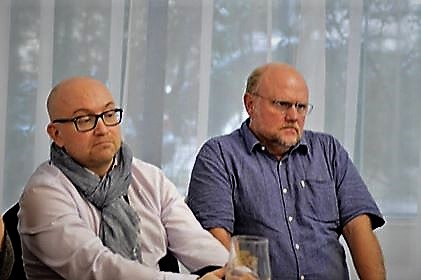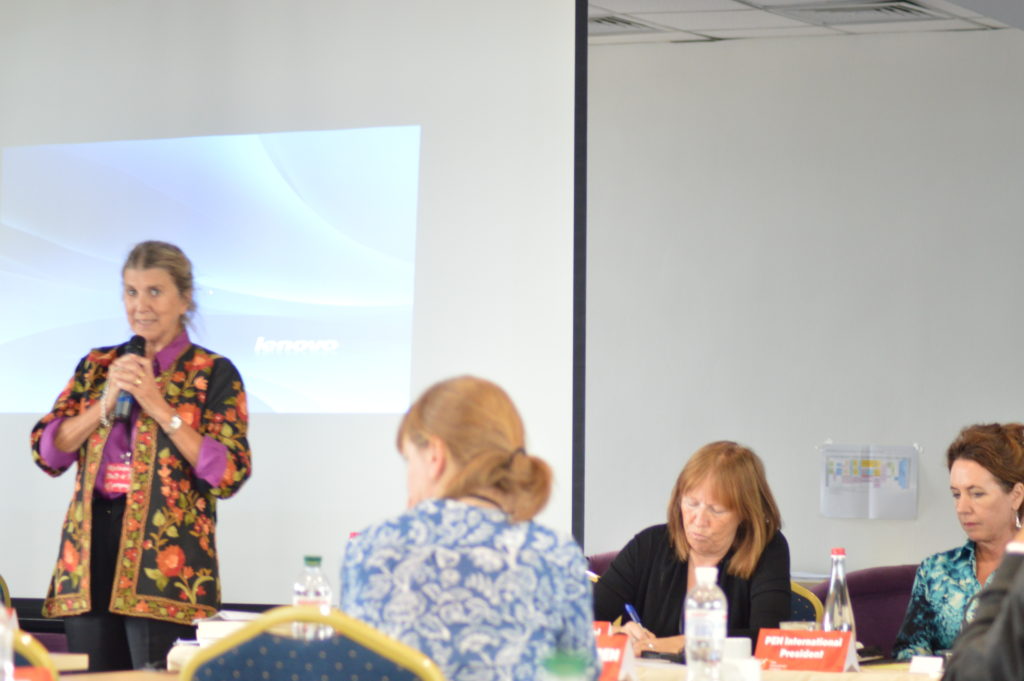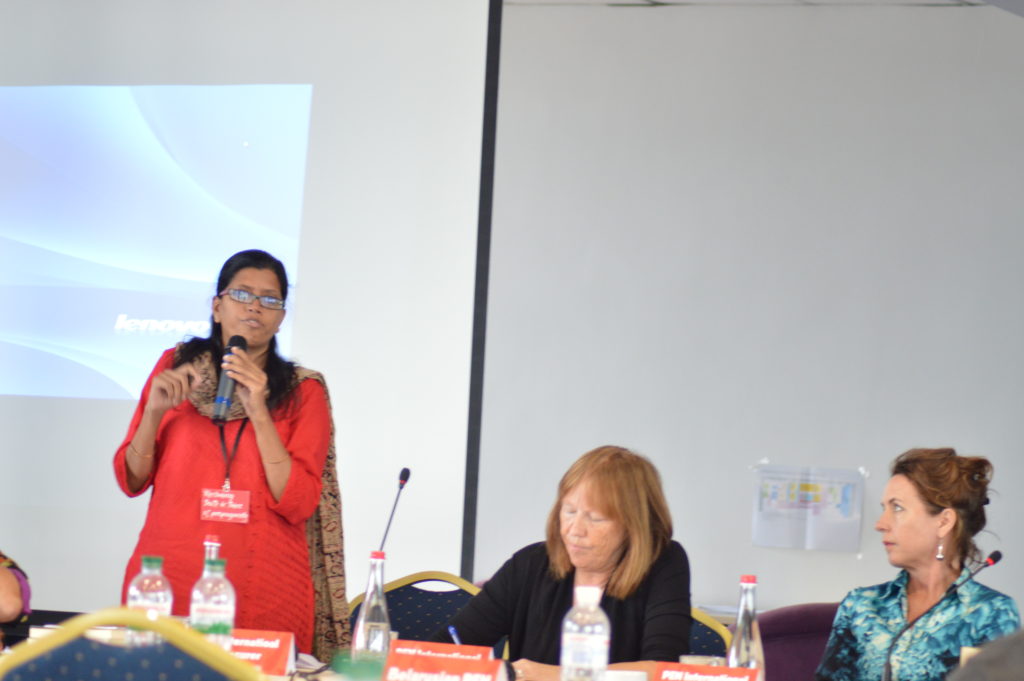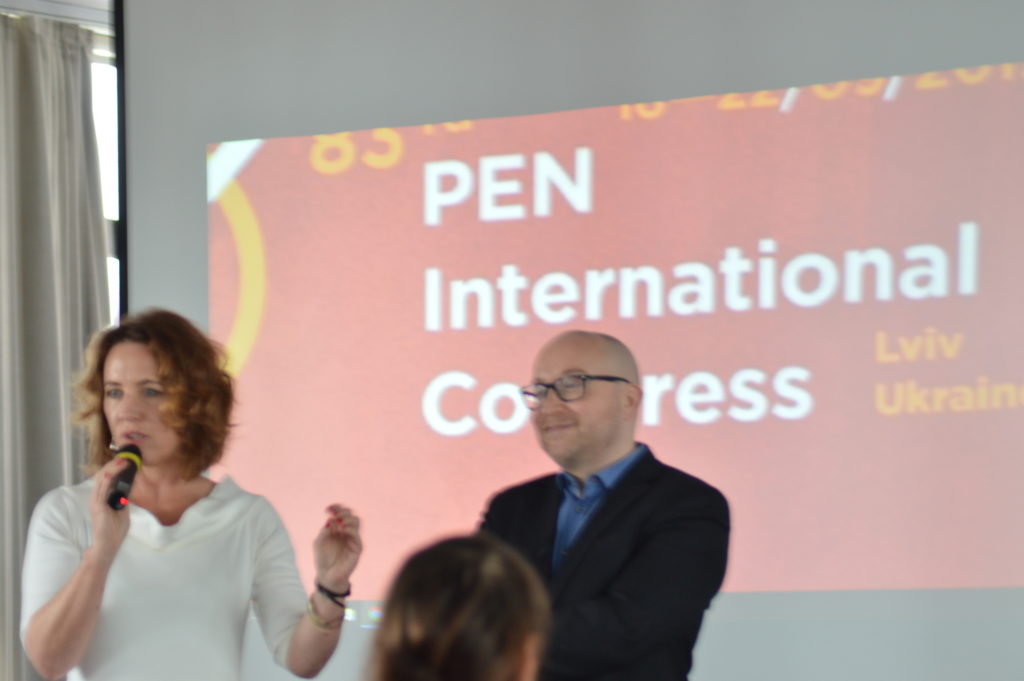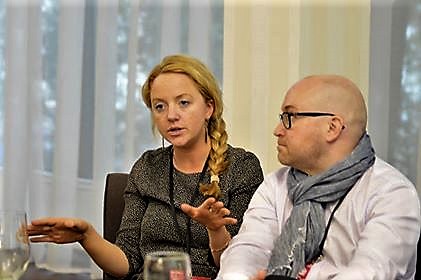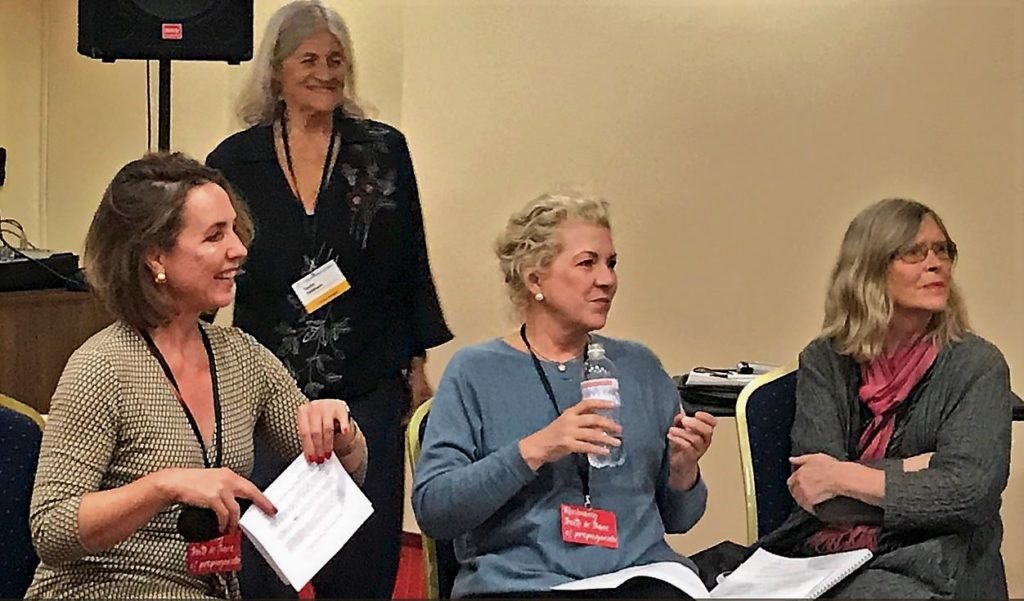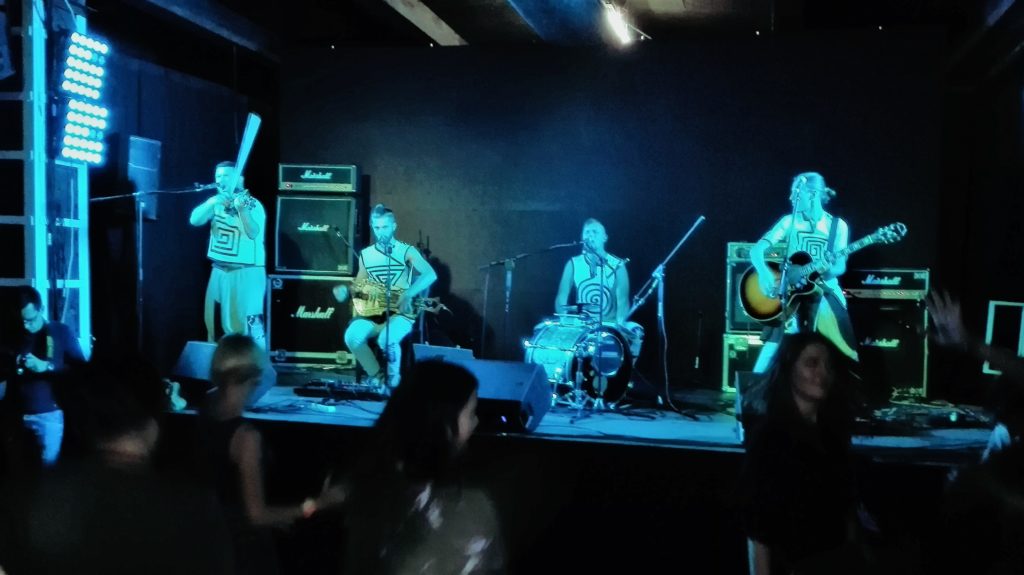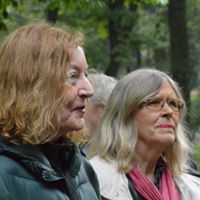The 83rd Congress of PEN International was held in the UNESCO city of literature Lviv, Ukraine, on Sept. 17th–23rd 2017.
During a city tour on the first day The Finnish PEN participants learned that some prominent writers and philosophers lived in Lviv such as Stanislaw Lem, Zbigniew Herbert, Martin Buber and Leopold Sacher-Masoch. All of them are translated into Finnish and Swedish.
The Finnish participants in the congress were Jarkko Tontti (now a board member of PEN International as well as PEN International Treasurer), Elisabeth Nordgren (Chair of International Women’s Committee) and our delegates Marianne Bargum (the Vice President of Finnish PEN and the Chair of Translation and Linguistic Rights Committee) and Mojibur Doftori (the chair of the Writers at Risk Committee). (Cont’d)
(Cont’d)
The first day of the congress was devoted to Committee meetings as well as discussions on the main resolutions sent to participants beforehand.
Marianne Bargum took part in both the Translation and Literary Rights Committee and Writers in Prison Committee. Mojibur Doftori participated in the Writers in Prison Committee meeting that was presided by international committee chair Salil Tripathi. He had done valuable work on beforehand with Finnish PEN’s resolution on Blasphemy that was submitted to PEN International. He coordinated the consulting meeting of the resolution on blasphemy to accommodate suggestions by PEN centres.
In the TLRC session a panel chaired by Mikola Riabchuc, President of Ukrainian PEN and Vice President Andrei Kurkov, a Jewish writer and a Crimean Tatar writer told the stories of their tormented history. The discussion was largely based on the PEN International report ”Freedom of Expression in Post-Maidan Ukraine: External aggression and Internal challenges.”. Linguistic situation is complex: Kurkov writes in Russian, Ukrainian becomes more and more predominant, Crimean Tatar is suppressed in Crimea and many writers and intellectuals are forced to leave their homeland. Add to this the Hungarian and Polish minorities as well as other, very small linguistic entities (which Andrei Kurkov has had projects with), and you realise that not all of the educational needs are fulfilled yet. You will find a list of persecuted journalists and artists at the end of the report.
Writers of Peace Committee agenda included the resolution of Death penalty, the migrant initiative, a Turkey initiative and a Peace Prize initiative.
Women Writers Committee presented the Bled meeting report and above all, a discussion on the Women’s Manifesto .
Writers in Prison Committee discussed among other things the crackdown on journalists in Eritrea, a frontline report on Venezuela and a had a panel discussion on surveillance.
The three following days of the congress were devoted to elections and resolutions, for example on Eritrea, Hate speech, Mexico, Russian Federation, Turkey, Ukraine, Vietnam and the Women’s manifesto. Several in session resolutions (China, Hungary, India, Kazakhstan, Poland, Spain, Venezuela and Honduras). Hungarian PEN was the only Centre which voted against resolution on Hungary. In the end all resolutions were approved without major objections, except the resolution on Hate speech. The Nordic delegates, Finnish included, stated that the resolution is too abstract to give a working tool to counter hate speech without infringing on the freedom of expression. After a debate, the resolution was re-named ‘Statement of intent’, and an ad hoc committee was formed to work out a more substantial text for the next congress. Final versions of the resolutions will be available on the PEN International website and they will be sent to the PEN Centres.
Amendment of the PEN Charter
In the Ourense Congress (2016) the vote on the proposal to amend the PEN Charter was postponed to the Lviv Congress. Now it was voted and accepted. The amended Charter now reads: ”Members of PEN should at all times use what influence they have in favour of good understanding and mutual respect between nations and peoples; they pledge themselves to do the utmost to dispel all hatreds and to champion the ideal of one humanity living in peace and equality in one world”.
In addition to PEN Centre reports, special attention was paid to the PEN International fact-finding mission to Turkey, which included the President, two Emeritus Presidents, several Vice Presidents, PEN Board members from the Nordic countries and Estonia. The delegation met Turkish opposition party leaders, ministers, publishers, writers and families of the imprisoned journalists. PEN International welcomed PEN centres to observe trials of journalists and writers in the country.
Elections
Jarkko Tontti was re-elected International Treasurer for a new three-year term. Simona Skrabec (Catalan PEN) was re-elected as Chair of the TLRC. Iman Hamaydan (Lebanese PEN) and Margie Orford (South Africa) were elected to the Board of PEN International.
After a discussion and a vote, the Assembly of Delegates decided to increase the annual PEN Centre dues to PEN International by 15 %. It was deemed necessary for the upkeeping of the ambitious programmes of PEN International.
Four new PEN Centres were accepted as members of PEN International, South India PEN, St Petersburg PEN, Gambia PEN, Cuba PEN. Russian PEN was not present in the Congress. Instead, it had sent a letter to the Congress where it objected the approval of St Petersburg PEN to PEN International.
Discussion at the Assembly of Delegates was lively. More communication between the PEN International Board, the staff (Secretariat) and the PEN centres was called for. There was an important discussion on the case list, which has been very difficult to manage and maintain in its present form. Ongoing cooperation with ICORN (International Cities of Refuge Network) was another crucial theme. Twenty participants of Danish, Estonian, Finnish, Norwegian and Swedish PEN centres and representatives of PEN International and International Cities of Refuge Network (ICORN) participated in the meeting, settting priorities and joint strategies for freedom of expression in the world.
During the congress participants had the opportunity to listen to several panel discussions at the Ivan Franko University. ”Superpowers under spotlight” (Paul Auster, Larry Siems, Dru Menaker), ”China’s shame and Putin’s powerplay: the decline of freedom of expression in Russia ”(Elena Chizhova, Sergey Parkhomenko, David Patrikarakos, Moderator Kätlin Kaldmaa). “Reclaiming Truth in times of Propaganda “(the main theme of the conference) with PEN President Jennifer Clement among the speakers. A very impressive and moving keynote speech was given by Philippe Sands: ”East West Street: Personal stories of life and law”, and last but not least: a testimony from a Chinese writer in exile who had spoken to Liu Xiabo by Skype. He said just before he died last summer: ”I have no enemies, I have no hatred.”
Before the end two coming events were announced: the next congress will be held in Puna, India, and the PEN International Centenary will be celebrated in Oxford in 2021. Centres were encouraged to collect material of their own histories for the celebration.
The closing ceremony started with organ music and a speech on how propaganda infiltrates itself into social media, and ended in a beer factory, where vibrant Crimean Tatar heavy metal music blended with folksongs had everybody dancing.
Written by Marianne Bargum based on the notes by Mojibur Doftori
On International Peace Day, the Assembly of Delegates call on governments to seek peace through dialogue and exchange of ideas. Over 60 Centres have gathered at this historic moment to call for an end to propaganda, censorship and curtailment of free expression. Statement on the gathering.
Philippe Sands delivers keynote speech at the 83rd PEN Congress in Lviv.

